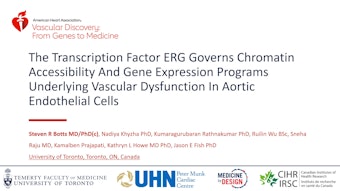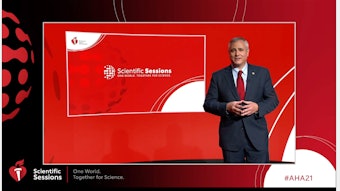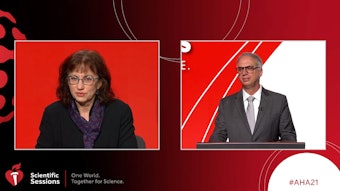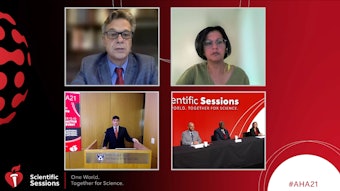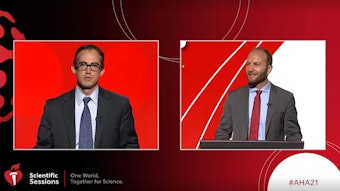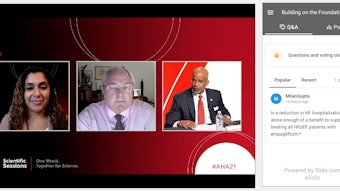Change is coming to new heart failure guidelines

New treatment guidelines for heart failure are in the final stages of writing, review and approval by the AHA, the American College of Cardiology and other stakeholders. Draft recommendations have not been made public, but members of the guideline committee have strong ideas of what should be included, starting with novel medications and positive health equity strategies to address social determinants of health that so dramatically affect patient care and outcomes.
“There has been some really exciting news in heart failure for patients with reduced ejection and in patients with preserved ejection fraction,” said James Fang, MD, FAHA, John and June B. Hartman Presidential Chair and professor of medicine and chief of cardiovascular medicine at the University of Utah School of Medicine. “Sodium-glucose cotransporter-2 inhibitors were originally designed for patients with diabetes and have had dramatic effects in heart failure. These drugs are a resoundingly safe medication with a very broad indication, so we’re very hopeful they will be addressed.
“It is increasingly clear after several years of exposure that the angiotensin receptor neprilysin inhibitors, or ARNIs, work quite well,” he added. “They are already included in guidelines for HFrEF, and we would hope on the basis of data that have been presented, they may also be addressed in the management of HFpEF.”
Dr. Fang will discuss medication-related changes that could or should be part of the new guidelines during “Where Should New Heart Failure Guidelines Change in 2021?” on Sunday from 3:30-4:30 p.m. EST. Khadijah Breathett, MD, MS, assistant professor of medicine at the University of Arizona Sarver Heart Center, will address some of the health equity strategies needed to make the new guidelines effective for all patients.
There is a growing recognition that effective medications and appropriate prescribing are just a single step in the effective management of heart failure, Dr. Breathett said.
Dr. Breathett outlined circumstances in which patients will not have the best outcomes. Patients who:
- Cannot afford appropriate medications
- Lack adequate transportation or childcare to get to care
- Have not received an understandable explanation of why they should exercise and adjust their diets
- Do not receive the appropriate care and attention because of provider bias
- Encounter other barriers to care related to race, ethnicity and socioeconomic status.
- She emphasized that all of these factors can, and must, be addressed.
“Guidelines do not typically address issues such as bias, structural racism and social determinants of health,” Dr. Breathett said. “We have to start looking at our individual hospital policies and purse strings to identify strategies that help ensure patients get what they need to live fulfilling lives out of the hospital, to live lives of the highest quality possible. That means going beyond the medications we prescribe to improving access.
“We already know how we compare to other countries around the world. We spend the most and we have the worst survival. It doesn’t add up. We have to make conscious decisions on how we are going to address these issues,” she said.
Visit Scientific Sessions Conference Coverage for more articles.


